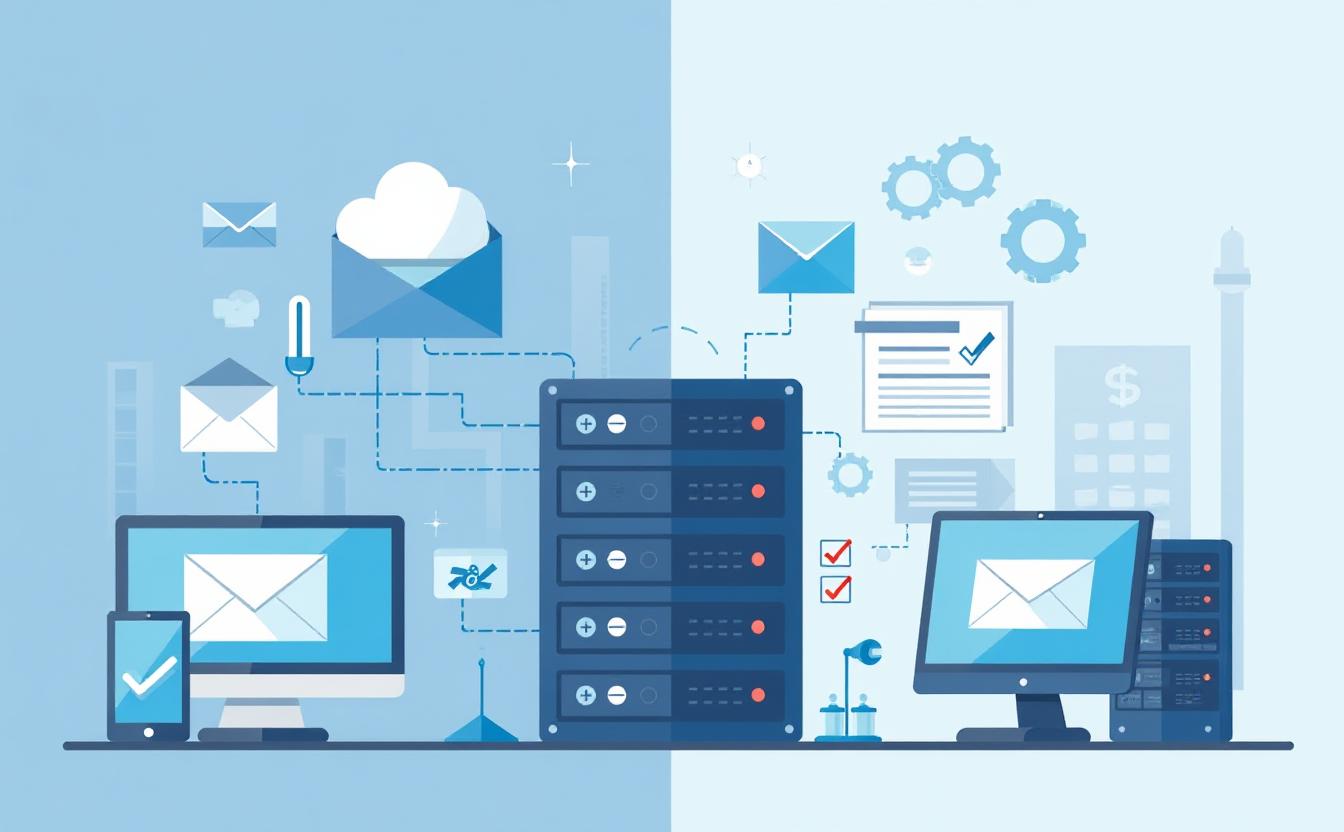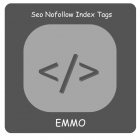Self-Hosted Mail Servers: Are They the Right Choice for Your Business?

Self-Hosted Mail Servers: Are They the Right Choice for Your Business?
Table of Contents
What Is a Self-Hosted Mail Server?
A self-hosted mail server is an email system where you manage and control all aspects of your email service. Instead of relying on third-party providers like Gmail or Microsoft Outlook, you host the mail server on your own infrastructure, whether it's a physical server on-premises or a cloud-based virtual server. This setup gives you complete control over your email storage, security protocols, and user management. Businesses opt for self-hosting email for greater customization, data privacy, and to reduce reliance on external services.
Advantages of Using a Self-Hosted Mail Server
Self-hosted mail servers offer several benefits for businesses that require more control over their email systems: Data Ownership: With a self-hosted server, your business has full control over your email data, ensuring sensitive information stays within your infrastructure. Customization: You can configure your server to meet your exact needs, from email filtering and anti-spam settings to server backups and archiving. Privacy: Since no third party is involved, you can ensure that no external company has access to your business communications. Cost Control: While the initial setup might be higher, over time, the costs of running your own server can be more predictable than paying for a subscription service.
Tip
If you offer your SEO texts in several languages or localize them for different regions, your pages may be incorrectly classified as duplicate content. However, there is a simple solution to this in the form of hreflang. Our article explains what you need to bear in mind when using hreflang.
Read more about hreflangChallenges of Managing a Self-Hosted Mail Server
Despite the benefits, there are also some challenges associated with managing a self-hosted mail server: Technical Expertise: Managing a mail server requires a deep understanding of server management, networking, and security. This can be demanding for businesses without dedicated IT resources. Maintenance and Updates: Self-hosting means you're responsible for maintaining your server, applying updates, and resolving technical issues when they arise. Downtime Risks: If your mail server experiences downtime, your business's email communications could be interrupted, which may negatively impact operations. Spam and Security Threats: A self-hosted server is more exposed to spam, malware, and hacking attempts. It’s crucial to implement strong security measures to protect your server.
Costs Involved in Self-Hosting Your Email
The costs of self-hosting an email server can vary based on your business's size and requirements: Hardware/Hosting Costs: You'll need to invest in servers, either on-premises or in the cloud. This includes the initial hardware costs or monthly cloud hosting fees. Software and Licensing: Most mail servers require specific software (like Postfix, Dovecot, or Microsoft Exchange) and may involve licensing fees. IT Resources: You'll likely need to hire or train IT staff to manage and maintain the server. These staffing costs can be ongoing. Backup and Security Solutions: Implementing backups, anti-spam, and antivirus solutions incurs additional costs to ensure the email system's reliability and security.
CSecurity Considerations for Self-Hosted Mail Servers
Security is one of the most critical aspects of managing a self-hosted mail server: Encryption: Ensuring your emails are encrypted both in transit (using TLS) and at rest is essential for maintaining data privacy. Spam and Virus Protection: You'll need robust anti-spam filters and antivirus systems to prevent malicious emails from entering your system. Firewalls and Access Controls: Setting up firewalls and ensuring only authorized users can access your server is crucial to prevent unauthorized access. Backup Solutions: Regular backups will help you recover data in case of server failure or cyber-attacks.
Self-Hosted vs. Third-Party Email Solutions: A Comparison
When deciding between a self-hosted mail server and a third-party email service, there are several factors to consider: Cost: Third-party services offer subscription-based pricing that covers software, security, and maintenance. While a self-hosted server has higher initial costs, it could become more economical in the long term for larger organizations. Control: Self-hosted servers give you complete control over your email system. With third-party services, you're subject to their policies, limitations, and data privacy terms. Security: Third-party providers often have advanced security features but require you to trust them with your data. Self-hosting puts security in your hands, but you’ll need to ensure robust protection is in place. Scalability: Third-party services are easily scalable with just a few clicks. A self-hosted server requires manual adjustments to hardware or virtual resources to accommodate growth.
| Advantages of Using a Self-Hosted Mail Server | |
|---|---|
| Data Ownership | Your business has full control over your email data, ensuring sensitive information stays within your infrastructure. |
| Customization | You can configure the server to meet your specific needs, from email filtering to server backups and archiving. |
| Privacy | No third-party provider has access to your business communications. |
| Cost Control | While the initial setup may be higher, over time, the costs can be more predictable than paying for a subscription service. | Technical Expertise | Managing a mail server requires a deep understanding of server management, networking, and security. |
| Maintenance and Updates | You're responsible for maintaining your server, applying updates, and resolving technical issues. |
| Downtime Risks | If the server experiences downtime, your business's email communications could be interrupted. |
| Spam and Security Threats | A self-hosted server is exposed to spam, malware, and hacking attempts, requiring strong security measures. |
| Hardware/Hosting Costs | Investment in physical servers or cloud-based virtual servers is required. |
| Software and Licensing | Mail servers require specific software (like Postfix, Dovecot) that may involve licensing fees. |
| IT Resources | You’ll need dedicated IT staff to manage and maintain the server. |
| Backup and Security Solutions | Backup, anti-spam, and antivirus solutions are necessary to ensure reliability and security. |
FAQs
What Is a Self-Hosted Mail Server?
A self-hosted mail server is an email system where you manage and control all aspects of your email service. Unlike third-party providers like Gmail or Microsoft Outlook, the server is hosted on your own infrastructure, giving you complete control over email storage, security, and user management.
Advantages of Using a Self-Hosted Mail Server
Self-hosted mail servers provide control over data ownership, customization, privacy, and cost control. You can configure your email system to suit your exact needs, ensuring your business communications remain secure within your infrastructure without relying on external services.
Challenges of Managing a Self-Hosted Mail Server
Managing a self-hosted mail server requires technical expertise in server management, networking, and security. You are responsible for maintenance, updates, and addressing issues like downtime, spam, and security threats.
Costs Involved in Self-Hosting Your Email
Costs include hardware or hosting fees, software and licensing costs, IT staffing resources, and security measures like backups, anti-spam, and antivirus solutions. These investments can vary based on your business's size and requirements.
Security Considerations for Self-Hosted Mail Servers
Security is crucial for a self-hosted mail server. Important measures include encryption for emails, anti-spam and antivirus protection, firewalls, access controls, and regular backups to ensure data privacy and protection.
Self-Hosted vs. Third-Party Email Solutions: A Comparison
While third-party email solutions offer subscription-based services with built-in security and scalability, a self-hosted mail server provides greater control over your system. However, you need to ensure security, scalability, and technical maintenance are adequately handled.










